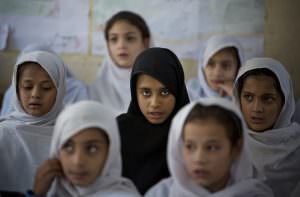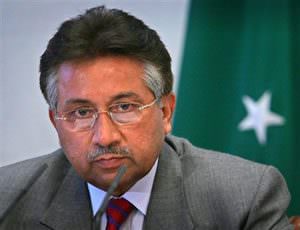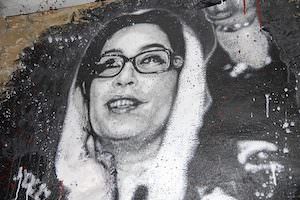Musharraf Still Stands
Benazir Bhutto and her supporters who died with her during the suicide attack Dec. 27 are the latest victims of decades of dangerous U.S. support for Pakistan's military regime.Benazir Bhutto and her supporters who died with her during the suicide attack Dec. 27 are the latest victims of decades of dangerous U.S. support for Pakistan’s military regime. The country’s dictator, Gen. Pervez Musharraf, has held his grip on power despite increasing popular unrest. The Bush administration got nervous, turning to Bhutto to preserve the status quo in Pakistan. There is no doubt the exiled former prime minister was personally brave to return to her country. But Pakistani professor Pervez Hoodbhoy was critical nevertheless: “After returning to Pakistan, she made clear that for a few table scraps, she would have happily teamed up with Musharraf under the hopelessly absurd U.S. plan to give the military government a civilian face.”
While President Bush imposed “regime change” on Iraq, based on fictitious weapons of mass destruction, “regime preservation” is the U.S. policy for Pakistan, despite its role in global nuclear proliferation, the sale of true WMDs.
Adrian Levy is a senior staff correspondent for the British newspaper The Guardian and co-author of “Deception: Pakistan, the United States and the Secret Trade in Nuclear Weapons.” He describes a “military government repressing human rights, connected tentatively to 9/11, state-sponsored terrorism with radical connections to al-Qaida that was proliferating WMD and of course that was not Iraq, it was Pakistan.” He told me: “The problem facing the Bush administration was their policy post-9/11 was very much to embrace Pakistan as an essential ally in the war on terror in order to allow the narrative over Iraq and the WMD in Iraq to rise. The Pakistanis milked their nuclear program for hard cash, selling to Iran, Iraq, North Korea, Libya, the Axis of Evil powers. We also know there is intelligence to show that they began negotiations very much with Saudi Arabia, Syria and, of course, there are tentative contacts with al-Qaida elements as well.”
The New York Times revealed last week that at least $5 billion in U.S. aid delivered to Pakistan since 9/11 to fight al-Qaida and the Taliban actually went into weapons systems against another U.S. ally, India.
The more nuclear weapons Pakistan has, the more the U.S. has a vested interest in protecting them. As The Washington Post reported last week, even before the Bhutto assassination U.S. Special Forces were planning a vastly increased presence in Pakistan in 2008, “to train and support indigenous counterinsurgency forces and clandestine counterterrorism units.” The Glasgow Herald now reports that U.S. Special Forces “snatch squads” are in Pakistan, prepared to secure the nuclear warheads in the event of the government’s collapse. What Pakistani author Tariq Ali told me recently about Afghanistan equally applies to Pakistan: “The people of Afghanistan … do not like being occupied by foreign powers. They didn’t like being occupied by the Russians, and they don’t like being occupied by the United States and the NATO armies in their country. And as long as this foreign occupation lasts, there will be forms of resistance against it.”
The CIA coined the term blowback. It applies to situations like Afghanistan in the 1970s and ’80s when the U.S. armed and trained the mujahedeen, including Osama bin Laden, to counter the Soviet occupation. When the Soviets were finally forced out, the mujahedeen set their sights on a new target: the U.S. That’s blowback.
While the Bush administration pushes for quick elections in Pakistan, it is important to raise these issues in our elections here at home. The assassination of Bhutto put foreign policy back on the front burner in the U.S. presidential race — though you would think that 2007 being the deadliest year yet in Iraq for U.S. soldiers (at least 900 dead) would have accomplished that. The candidates could use this as a “teachable moment” to talk about the wrongheaded long-term U.S. support — Republican and Democrat — for Pakistan’s corrupt, human-rights-abusing nuclear regime. Did any of the leading Democratic contenders use the moment to demonstrate that they represent a true opposition party? While they each tout themselves as true “change” agents, they have yet to prove it. We are waiting.
Amy Goodman is the host of “Democracy Now!,” a daily international TV/radio news hour airing on 650 stations in North America.
© 2008 Amy Goodman
Distributed by King Features Syndicate
Your support matters…Independent journalism is under threat and overshadowed by heavily funded mainstream media.
You can help level the playing field. Become a member.
Your tax-deductible contribution keeps us digging beneath the headlines to give you thought-provoking, investigative reporting and analysis that unearths what's really happening- without compromise.
Give today to support our courageous, independent journalists.








You need to be a supporter to comment.
There are currently no responses to this article.
Be the first to respond.